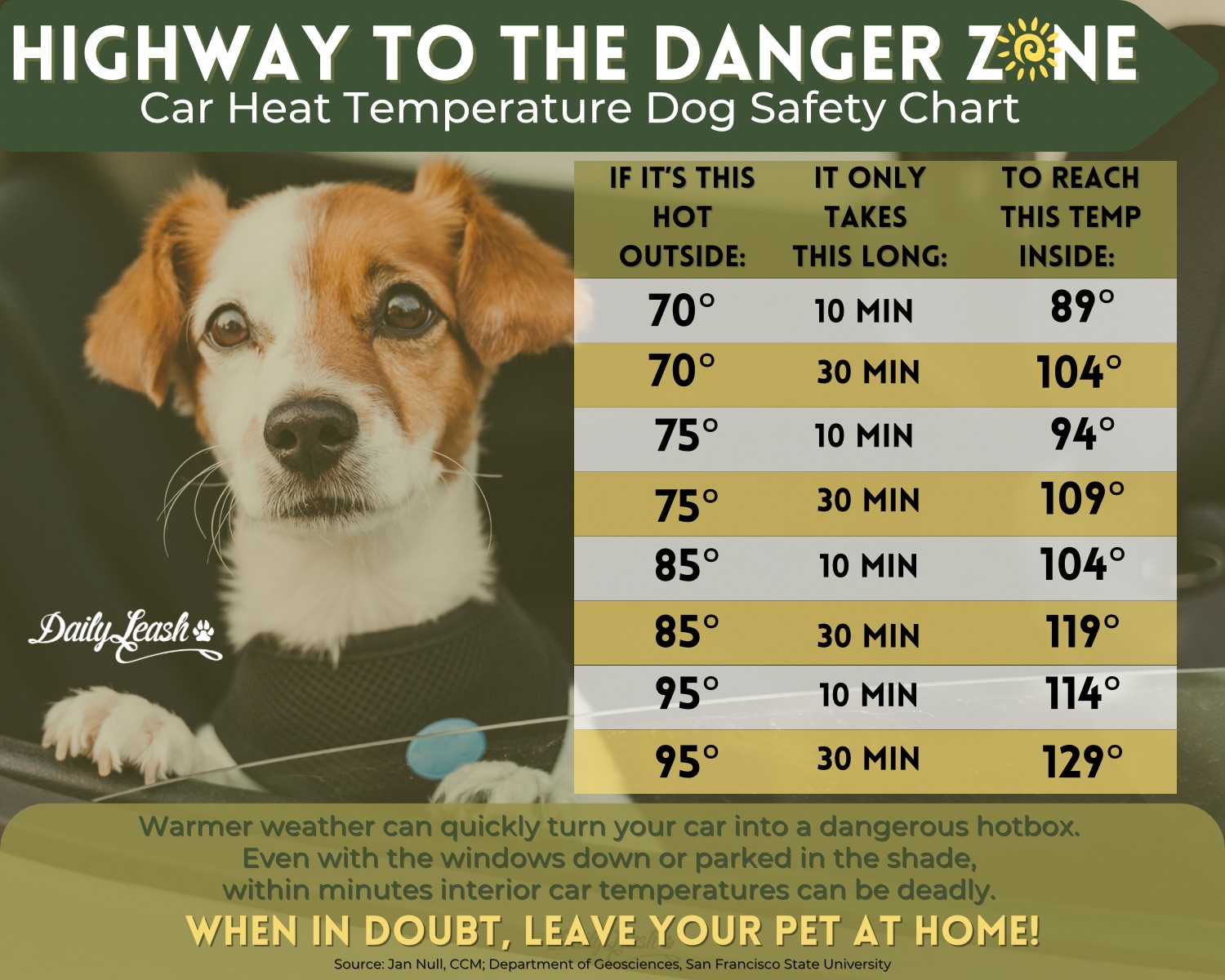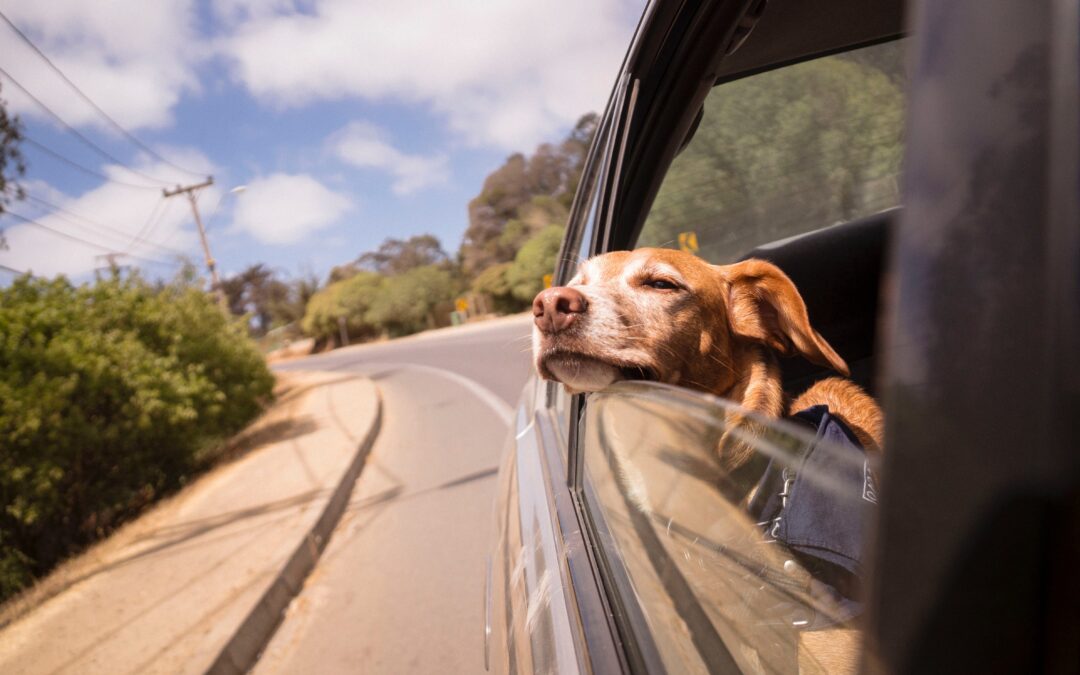Most dog owners know you shouldn’t leave a dog in a hot car. But what if it’s overcast? What if you crack the windows? What if it’s just a quick errand? How hot is too hot to leave your pet unattended in your car???
Every year, hundreds of pets die from heat stroke after being left in a hot car, and many of these tragedies don’t occur on the hottest days of the year or even the sunniest. Studies, reported by the American Veterinary Medical Association (AVMA), show that when the outside temperature is as low as 70 °F, the interior of your car can heat to over 100 °F in less than thirty minutes.

Research also indicates that a car with cracked windows heats up at nearly the same rate as one with its windows closed. Parking in the shade and light-colored cars have also been proven to have little impact on the danger to your pet. As discussed in part 1 of this series, “How Hot is Too Hot??” a variety of factors can lead to deadly heat stroke in dogs, including humidity, breed and body composition, and age — depending on those factors, heat can be potentially life-threatening at as low as 65 °F. This is true whether your pup is playing in the backyard, tagging along on an errand run, or acting as your co-pilot on a cross-country road trip. See the chart above for a sampling of just how quickly your car can heat to dangerous levels for your dog. In most instances, leaving your dog in the car during the warmer months simply isn’t worth the risk. When in doubt, leave your pet at home.
But what about that cross-country road trip? What do you do when you don’t have a choice but to bring your four-legged friend along? Ideally, if you need to take your pooch along for a road trip, bring another human as well—someone who can stay with your dog when you need to take bathroom breaks or grab a bite to eat. Kayla Fratt, CDBC of Journey Dog Training, suggests leaving the AC on with a remote start, locked doors/spare key combo, or steering wheel lock. She notes the importance of leaving your pet with water and frequently checking to ensure your animal is doing okay and not showing any signs of distress. You may also want to leave a note on your car to reassure any concerned passersby that your dog is safe and you’ll be back to check on them soon. You can include your contact information and any safety features you have set up for your dog’s comfort and security in your absence.
And what should you do if you come across a dog unattended in a hot car? Keep your cool; even if your blood is boiling, anger isn’t going to help anyone, especially the dog. Hovering around the car, peering through or knocking on the windows is only going to cause stress for the dog, possibly making them even more prone to overheating. Stay calm and wait it out for a few minutes, observing the dog from afar (at least car length or two away), and chances are their owner will return momentarily. If the dog is exhibiting signs of heat stroke, like excessive panting and drooling with an enlarged lolling tongue, or seems incoherent or unconscious (not sleeping), then it may be time to get help. If you can’t find the owner, call the local animal control or non-emergency police line. Massachusetts, along with many other states, has laws to hold accountable those who irresponsibly leave their pets alone in a parked car and protect those who act to help such animals, but certain parameters must be met before you act. A reasonable effort must be made to find the owner, law enforcement must be contacted, and the situation must indicate that entry into the vehicle is reasonably necessary to prevent imminent danger or harm to the animal.
As we said from the start, most pet owners know it can be dangerous to leave their dog in a car unattended on a hot day. It is safe to assume that most pet owners also love their pets and would not intentionally cause them harm. Awareness is the most effective way to keep pets safe—yours and those in our community. Learning about the dangers of heat for dogs and staying mentally cool when the temperature rises will help you make the best decisions for your pet and any other pets you may encounter.

